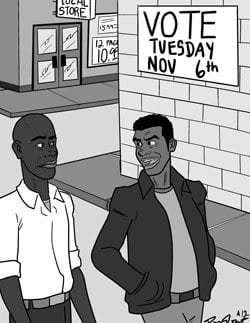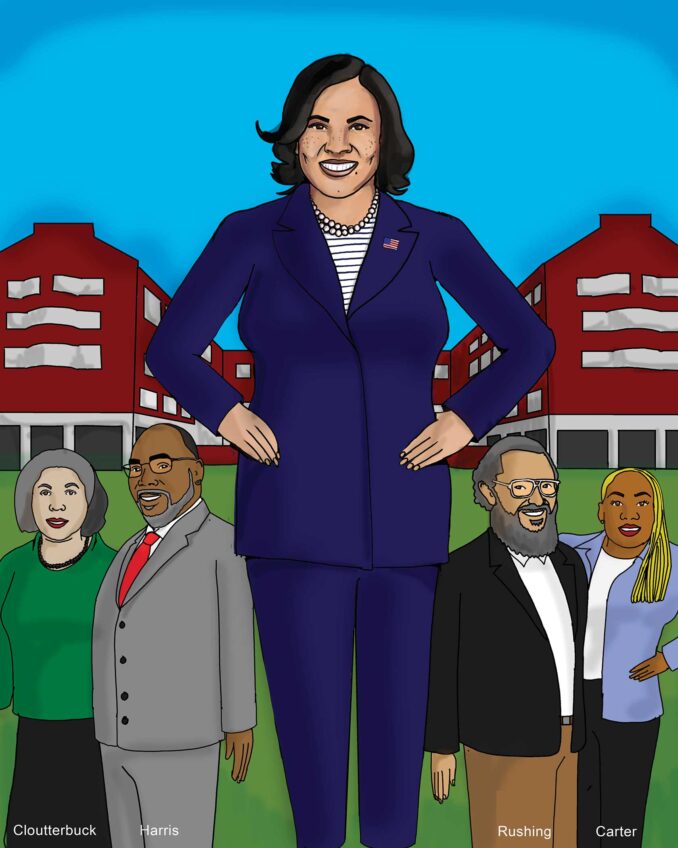
Let your voice be heard
Millions of citizens will troop to the polls on Nov. 6 to vote for president and other candidates for high office. Simple arithmetic will indicate that the participation or absence of any one individual will not affect the outcome of the election. Nonetheless, most civically engaged Americans feel a strong desire to be part of the political campaign finale.
For African Americans with a sense of history, elections are especially significant for several reasons. Most important is the awareness of the struggle over centuries for blacks to obtain suffrage. Recent Republican efforts to impede voting in democratic areas renewed memories of the denial of that valued franchise.
Also important is the sense of community that a political campaign can engender. American society is acutely competitive. Individual success is highly valued. It is not easy to induce people to unite for a common cause, but when it happens the social impact is palpable.
This sense of community is not to be confused with neighborliness. That means only that the people are civil and they share the same zip code. Although they live in the same area, neighbors are not necessarily energized into united social action.
Reports during the Civil Rights era found that when blacks were mobilized into common action for peaceful protest, the crime rate in the area dropped precipitously. Such events are never sustained but they are dramatic when they occur.
The most outstanding demonstration of this phenomenon was the Million Man March in October, 1995. At the call of Minister Farrakhan, more than a million black men from all over the country came to the nation’s capitol. Just think how huge that was. There were more men in attendance than the present total black population of Detroit, and more black men than presently live in Chicago.
Despite the enormous size of the crowd that was more than four times the audience for Martin Luther King’s 1963 convocation, there was no violence. The police were prepared for a riot but it was all quiet on the National Mall. Speakers advised the men to “take responsibility for their lives and families, and commit to stopping the scourges of drugs [and] violence.”
There has been some debate during the past 17 years since the Million Man March as to whether it was a lost opportunity. Some seemed to think it was a recruitment drive. Can you imagine the impossibility of trying to organize one million men into community action teams all in one day?
Some reverberation from the Million Man March will be felt on this Election Day. Prior to Oct. 16, 1995 there was considerable question among black militants as to whether politics was an appropriate endeavor. Those pursuing the conventional political strategy had to cope with ridicule from the more militant. However, when the message came from Washington that black men should “register to vote and build black political power,” attitudes changed.
Black citizens have been very assertive in this election as they confronted Republican efforts to disenfranchise them. Now the task is to rebuild the multi-racial coalition that brought victory in the Civil Rights Movement. Now the country needs a major political push to rebuild the middle class.






